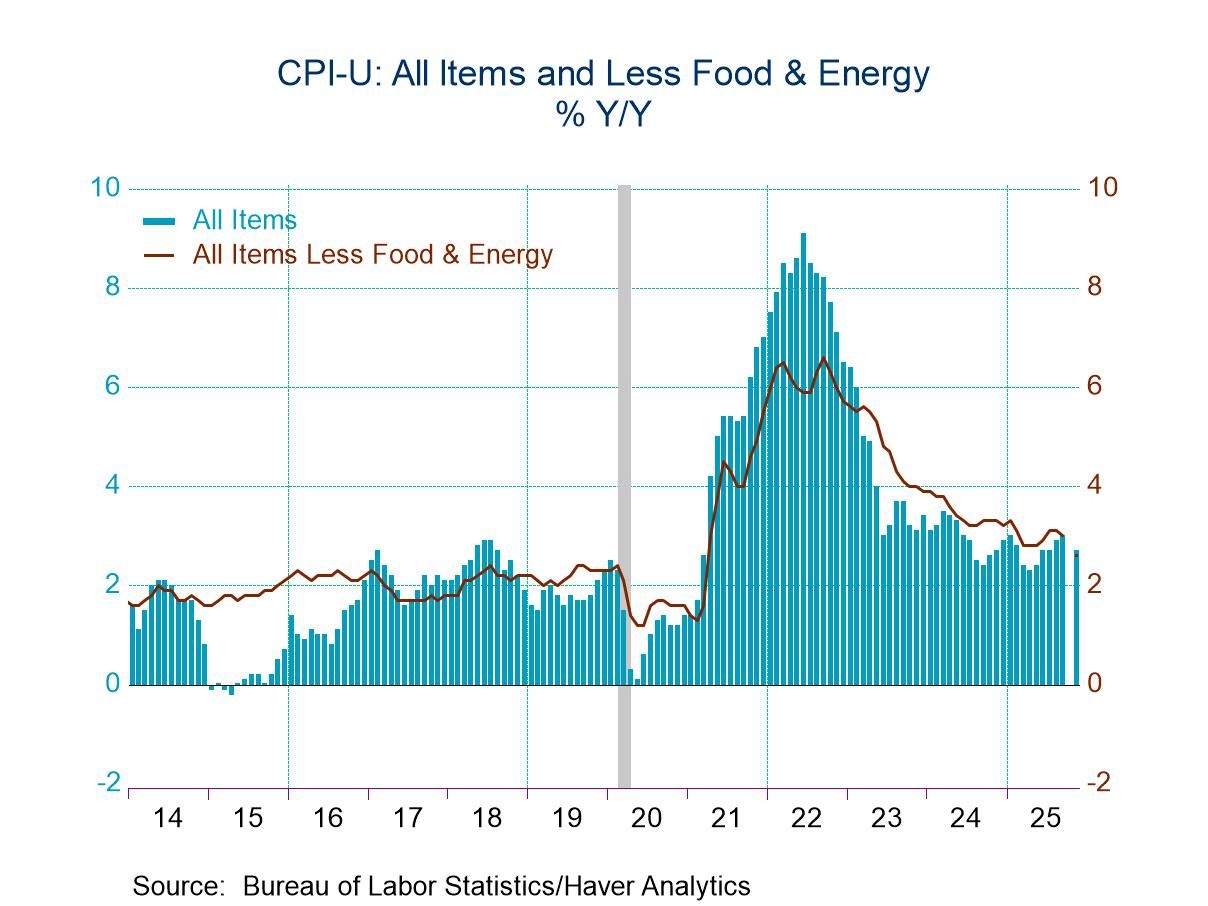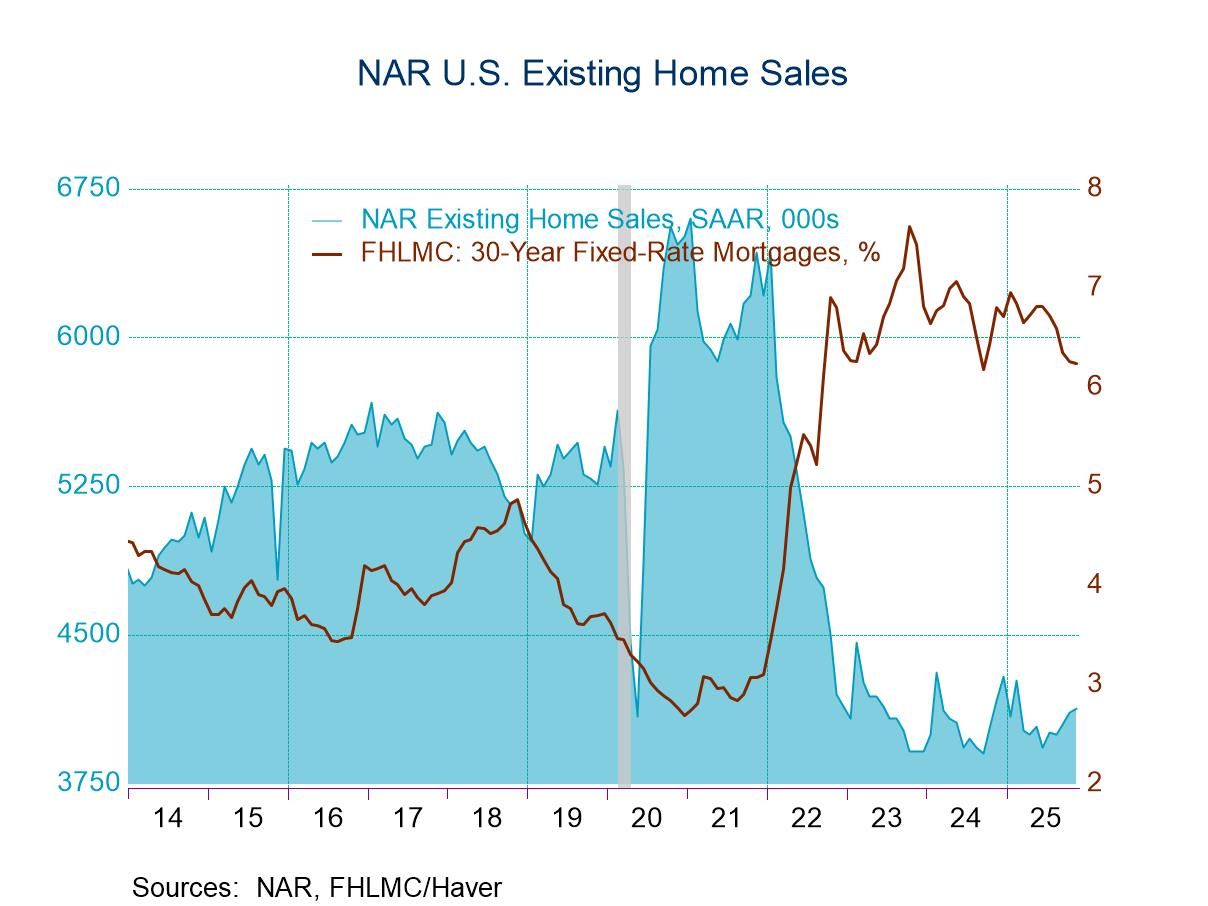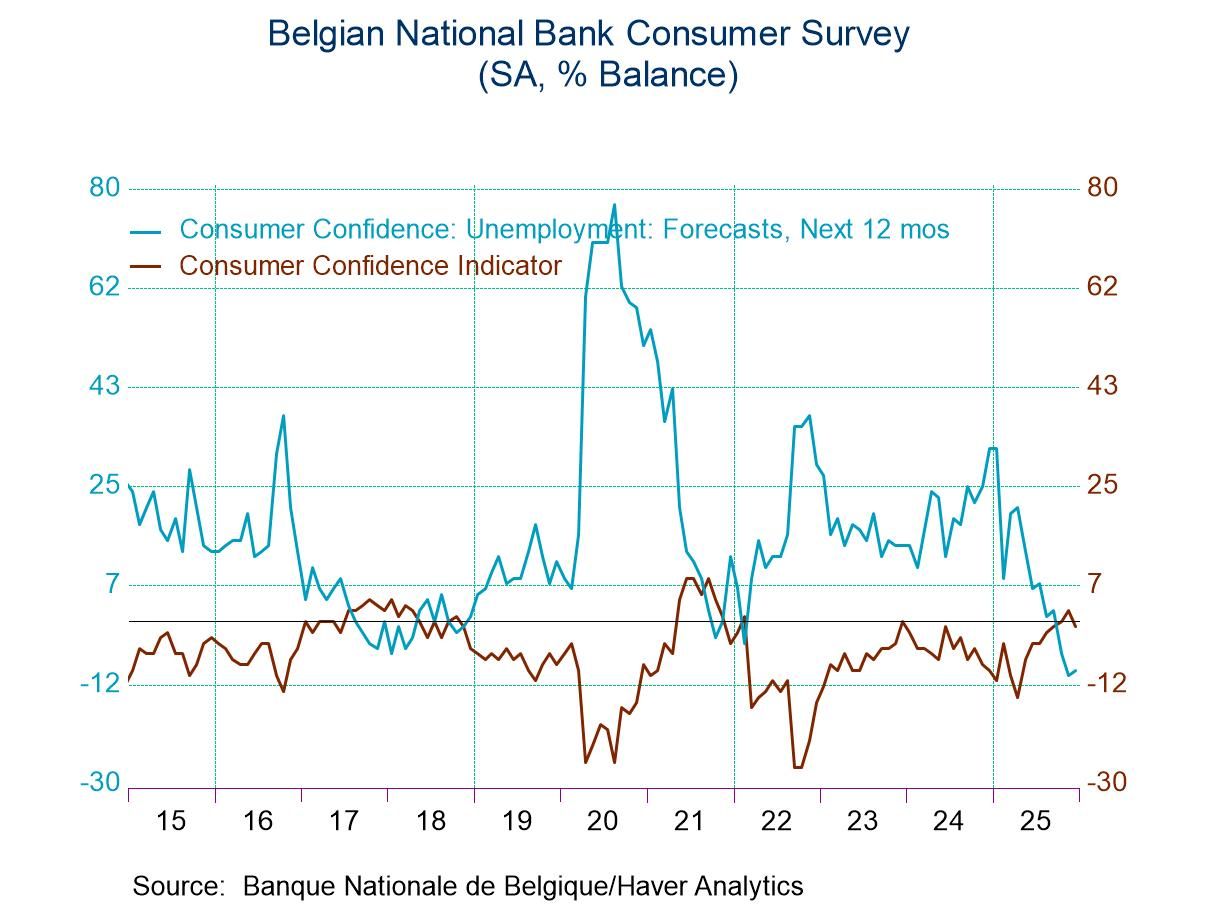 Global| Jul 12 2005
Global| Jul 12 2005JOLTS: U.S. Job Openings Eased
by:Tom Moeller
|in:Economy in Brief
Summary
The Bureau of Labor Statistics reported that the job openings rate, from the Job Openings & Labor Turnover Survey (JOLTS), eased in May to 2.5% while the previously reported April increase was revised away. The job openings rate is [...]
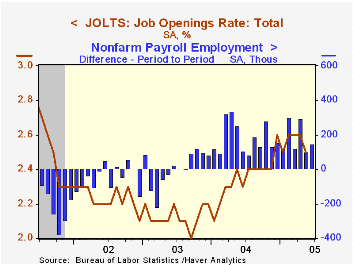
The Bureau of Labor Statistics reported that the job openings rate, from the Job Openings & Labor Turnover Survey (JOLTS), eased in May to 2.5% while the previously reported April increase was revised away. The job openings rate is the number of job openings on the last business day of the month as a percent of total employment plus job openings. The total number of job openings fell 3.1% m/m (+8.9% y/y) after a downwardly revised 0.6% decline during April
The hires rate recovered to 3.5% following the sharp decline in April. The hires rate is the number of hires during the month divided by employment.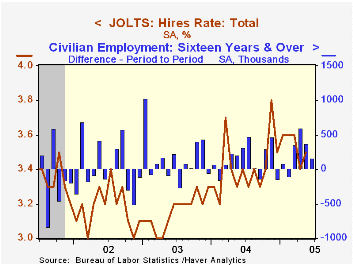
The job separations rate fell to 3.3% after having been elevated during the prior two month. Total separations include quits, layoffs, discharges, and other separations as well as retirements. The total separations, or turnover, rate is the total number of separations during the month divided by employment.
The survey dates only to December 2000 but has since followed the movement in nonfarm payrolls.
A description of the Jolts survey and the latest release from the U.S. Department of Labor is available here.
| JOLTS (Job Openings & Labor Turnover Survey) | May | April | May '04 | 2004 | 2003 | 2002 |
|---|---|---|---|---|---|---|
| Job Openings Rate: Total | 2.5% | 2.6% | 2.4% | 2.4% | 2.1% | 2.2% |
| Hires Rate: Total | 3.5% | 3.4% | 3.3% | 3.4% | 3.2% | 3.2% |
Tom Moeller
AuthorMore in Author Profile »Prior to joining Haver Analytics in 2000, Mr. Moeller worked as the Economist at Chancellor Capital Management from 1985 to 1999. There, he developed comprehensive economic forecasts and interpreted economic data for equity and fixed income portfolio managers. Also at Chancellor, Mr. Moeller worked as an equity analyst and was responsible for researching and rating companies in the economically sensitive automobile and housing industries for investment in Chancellor’s equity portfolio. Prior to joining Chancellor, Mr. Moeller was an Economist at Citibank from 1979 to 1984. He also analyzed pricing behavior in the metals industry for the Council on Wage and Price Stability in Washington, D.C. In 1999, Mr. Moeller received the award for most accurate forecast from the Forecasters' Club of New York. From 1990 to 1992 he was President of the New York Association for Business Economists. Mr. Moeller earned an M.B.A. in Finance from Fordham University, where he graduated in 1987. He holds a Bachelor of Arts in Economics from George Washington University.



